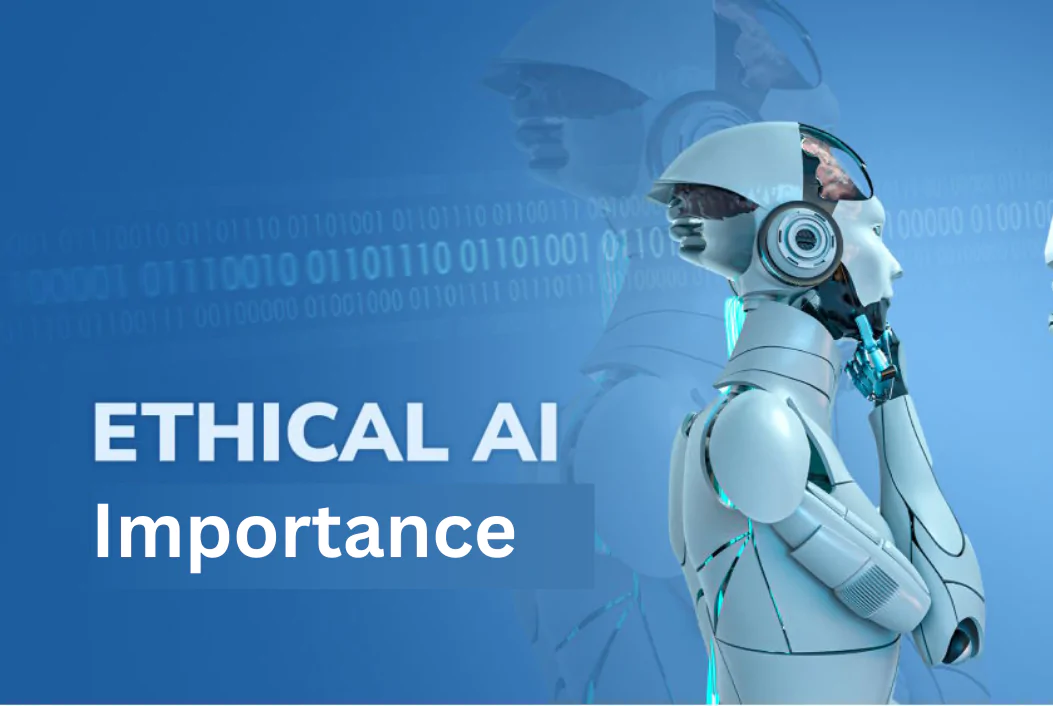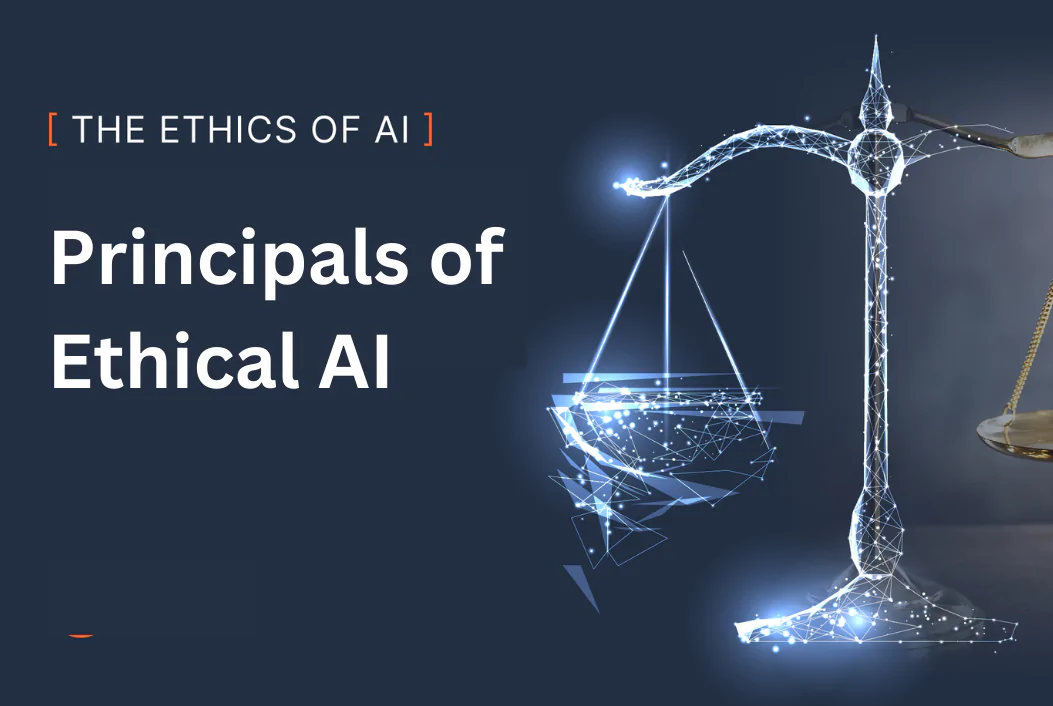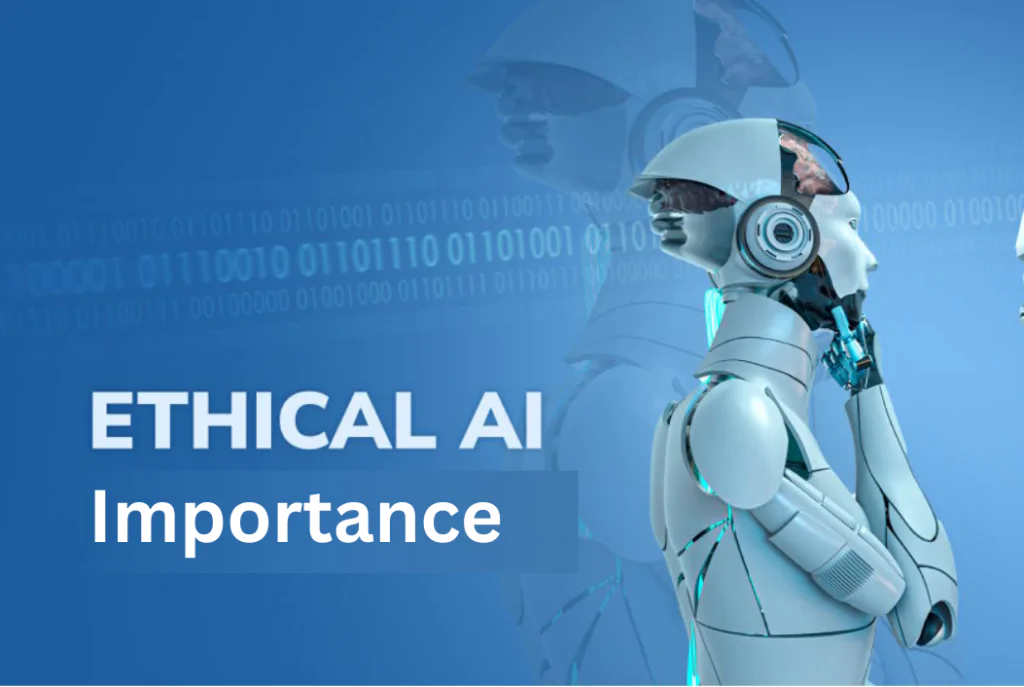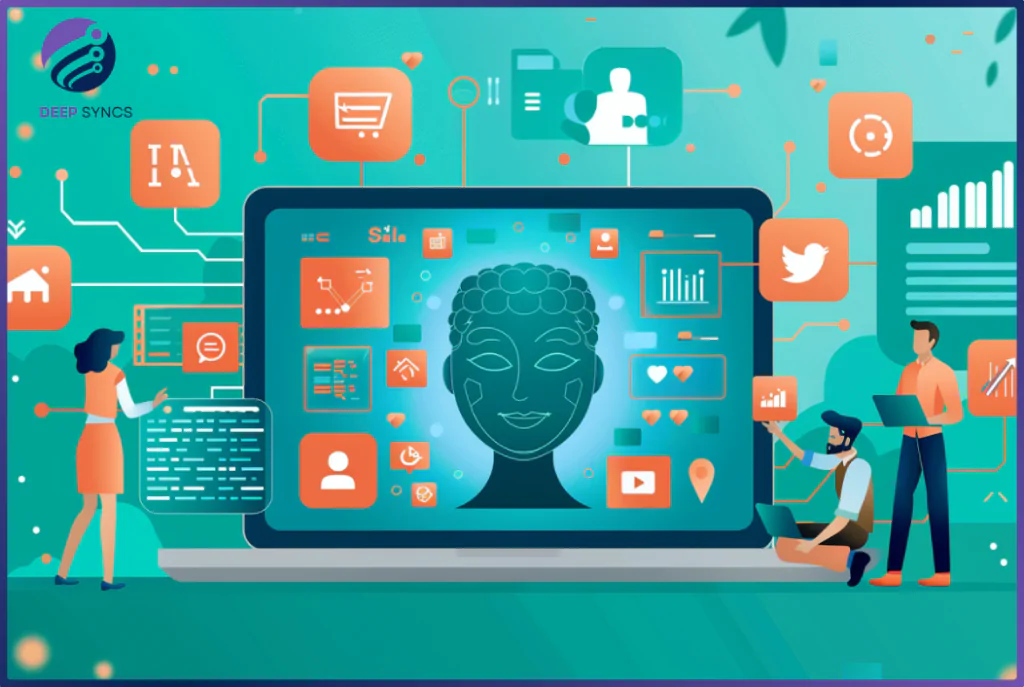What is Ethical AI?
Ethical AI is a form of AI that conforms to well-defined ethical standards regarding fundamental principles, including such things as individual rights, privacy, equality, and non-manipulation. When deciding what applications of artificial intelligence are acceptable and inappropriate, ethical AI gives ethical considerations a basic priority. Companies that use ethical AI have explicit policies in place and review procedures that are well-defined to make sure these policies are followed.
Understanding of Ethical AI
The term “ethical AI” describes the responsible and equitable application of artificial intelligence. This entails ensuring that AI systems treat everyone equally and free from prejudice. Transparency is a key component, so we know how AI makes decisions. It should also put a strong emphasis on privacy protection and making sure that personal data is safe and used responsibly.
Accountability is also very important because it means accepting responsibility for the results of AI and making sure that it is used responsibly. We can create AI that advances values, respects individual rights, and benefits society by following these ethical guidelines. We adhere to the four crucial concepts of accountability, transparency, privacy, and fairness in order to achieve that.
Importance of Ethical AI

Artificial intelligence (AI) can be applied for both good and bad. The advantages of using AI ethically are numerous and substantial. By using AI, businesses can become more productive, create cleaner products, lessen their negative effects on the environment, boost public safety, and enhance human health. However, when applied unethically—for example, for purposes like deception, disinformation, abuse of human rights, or political repression—artificial intelligence (AI) can have gravely negative consequences for people, the environment, and society.
The importance of ethical AI cannot be overstated. As AI continues to advance and integrate into various aspects of our lives, it is crucial that it operates in an ethical manner. From protecting user privacy to avoiding biased decision-making, ethical AI ensures fairness, transparency, and accountability. Embracing ethical AI practices will not only build trust with users but also contribute to the responsible development and deployment of AI technologies.
Principals of Ethical AI

- Accountability
In AI, accountability refers to accepting accountability for the results of decisions made by AI. In the event of an issue, we must determine who is at fault and how to resolve it. Accountability guarantees the ethical and responsible application of AI.
- Transparency
Understanding how AI makes decisions is another difficult task. Certain AI models are like “black boxes,” meaning we don’t see the decision-making process they use. To understand why AI makes the decisions that it does, we need to figure out how to make AI more transparent.
- Fairness
In AI, fairness is the application of impartiality and equality to all. It’s about ensuring that the results of AI decisions are fair and unbiased and do not favor one group over another.

Conclusion
To sum up, laws and ethical AI constitute the cornerstones of responsible AI development. They give us direction on how to fully utilise AI’s potential while upholding justice and safeguarding people. It’s a team effort, with laws and ethics paving the path for a more promising AI-powered future that serves the interests of all.
FAQ
1. What is ethical AI?
The responsible and fair use of artificial intelligence is referred to as “ethical AI,” or AI ethics. It entails guidelines that guarantee AI systems treat everyone equally, stay clear of prejudices, value openness, and safeguard privacy.
2. Why are ethics important in AI development?
In order to stop discrimination, bias, and unethical behavior in AI systems, ethics are essential in AI development. Fairness is encouraged and individual rights are protected by ethical AI.
3. How can AI developers ensure fairness in AI systems?
By employing impartial and varied data, recognizing and fixing bias in AI models, and routinely testing and monitoring their systems for fairness, developers can guarantee fairness.


